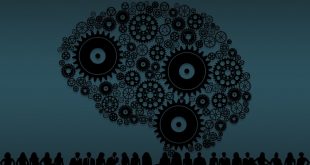Serena Mao
Whether they be social, political, environmental, or anything in between, the world is full of problems that are begging for a solution. These issues can be big or small: finding new desks for a school in a rural town, researching a cure for cancer, stopping school shootings, etc. Different issues affect a wide variety of individuals, with each usually inflicting damage upon very specific groups of people.
Of course, humanity doesn’t let these problems sit around. Inevitably, certain groups or individuals will stand up and decide that they want to put the suffering to a stop, creating charities, sparking movements, or pushing for reform. These people are crucial to human society. Without their readiness to take initiative, others are left to suffer for longer. As a result, it is in our benefit to maximize the number of problem solvers. At this point, it’s necessary to study the motivations of these activists.
To be willing to invest time and effort into a cause, one needs to be deeply emotionally involved in an issue. In other words, they need to care and believe in a certain ideal. In the example of unequal pay, activists believe that in an ideal world, those doing the same quality and quantity of work should be paid the same. Since that is currently not the case, they work hard to reform society to match that ideal. Crucially however, most people do believe in a wide variety of issues. Most believe that we should work to alleviate poverty, stop climate change, or bring a halt to discrimination. We all have an ideal world in mind, of what we wish the world could be. So why don’t we take action?
With so many issues out in the world, it’s absolutely impossible for people to focus on all of them. What’s more important is whether they do act on any of these problems, and from there, which they choose to act upon. When assessing the solutions to many problems we see in the world today, we realize that many people who strive for change have a personal connection to the issue at hand. It’s no coincidence that numerous founders of successful charities or organizations to solve prevalent problems have a backstory that aligns perfectly with their cause. Obviously, if one has been affected personally by a specific issue, it is easy for them to take action to solve it.
Looking closer, the reason we tend to act on issues which we are affected by is because we feel or have experienced the emotional or physical pain associated with the specific problem. As a result, our self-centered desire to rid ourselves of this pain compels us to look for a solution to the problem in front of us, simultaneously solving it for the people around us. From there, the ripple effect comes into play, as a small solution is easy to expand once it has been established. Consequently, the originally selfish desire to solve our own problems ultimately allows us to alleviate pain from those around us, benefiting society as a whole.
It is unfortunate that it often takes the problem to appear in our lives for us to care enough about solving it. After all, we can be aware that many things are wrong or could be improved, but the desire never arrives to take that first step forward. In the most ideal scenario, we could find ways to create that desire without having luck bad enough to experience it first. This can be achieved through exposing oneself to the problem: for example, talking to or interacting with those that are afflicted. Through direct contact and interaction with people afflicted with the problem, we can create the same desire to take our own steps forward to improve the world around us.
 Tempus Magazine By Students, For Students
Tempus Magazine By Students, For Students 



